A&S Faculty News
September 2017
Gittner Interviewed on Health Care Bill
 Lisa Gittner, Associate Professor in the Department of Political Science, was interviewed
in a Sept. 26 FOX-34 Television news story about the latest Republican healthcare bill pulled from the Senate vote. "We're going
to go broke as a federal government if we keep spending all this money," Gittner told
the Lubbock TV statoins. "Cost estimates are by 2027, we're going to be almost 30
percent GDP." If nothing is done and health care spending continues at its current
rate under the Affordable Care Act, the report stated, Gittner held that lawmakers
will be left with some tough decisions. "Something has to give. What are we not going
to do? Are we going to choose not to educate? Are we going to choose to let our roads
and bridges fall apart? What are we going to choose not to do, and yes it becomes
truly a social justice issue."
Lisa Gittner, Associate Professor in the Department of Political Science, was interviewed
in a Sept. 26 FOX-34 Television news story about the latest Republican healthcare bill pulled from the Senate vote. "We're going
to go broke as a federal government if we keep spending all this money," Gittner told
the Lubbock TV statoins. "Cost estimates are by 2027, we're going to be almost 30
percent GDP." If nothing is done and health care spending continues at its current
rate under the Affordable Care Act, the report stated, Gittner held that lawmakers
will be left with some tough decisions. "Something has to give. What are we not going
to do? Are we going to choose not to educate? Are we going to choose to let our roads
and bridges fall apart? What are we going to choose not to do, and yes it becomes
truly a social justice issue."
Hayhoe Appears on CBS News' '60 Minutes'
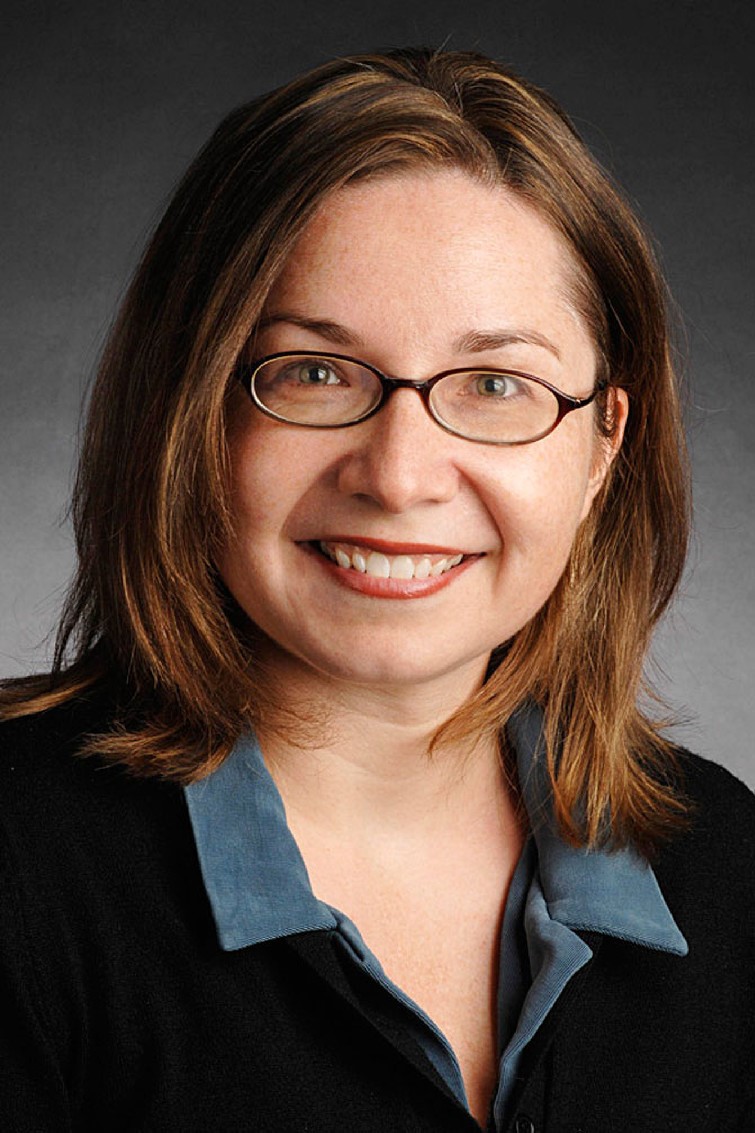 Katharine Hayhoe, Professor in the Department of Political Science and Director of
TTU's Climate Science Center, was interviewed on the CBS program 60 Minutes about whether Harvey-level hurricanes will become more prevalent in the future. That
news segment aired Sept. 24. That same day, Hayhoe also took part in the launch of
the new CBS interfaith series, "Protecting the Sacred: Water, the Environment & Climate Change." On that show, Hayhoe spoke about the negative impact that climate change is having
on the planet and how there is only a narrow window of opportunity to mitigate further
damage, according to a Sept. 24 article in Broadway World. "Protecting the Sacred" features a rainbow of diverse faith communities and how they
are responding to these threats. In other news, Hayhoe was among those who spoke at
the 12th Annual Hancock Symposium September 20-21 at Westminster College in Missouri. The Hancock Symposium challenges students through
intellectual discourse in two engaging days of lectures, panel discussions and presentations
on one particular subject of global interest, according to an advance story in the
News Tribune. Earlier in the month, Hayhoe was quoted by Inside Climate News in a Sept. 8 story about the UN Climate Assessment Process. In a Sept. 5 story from QZ.com, Hayhoe had worked on a research team that examined 38 papers published in peer-reviewed
journals in the last decade that denied anthropogenic global warming. The article
reported that Hayhoe wrote in a Facebook post that "Every single one of those analyses had an error—in their assumptions, methodology,
or analysis—that, when corrected, brought their results into line with the scientific
consensus."
Katharine Hayhoe, Professor in the Department of Political Science and Director of
TTU's Climate Science Center, was interviewed on the CBS program 60 Minutes about whether Harvey-level hurricanes will become more prevalent in the future. That
news segment aired Sept. 24. That same day, Hayhoe also took part in the launch of
the new CBS interfaith series, "Protecting the Sacred: Water, the Environment & Climate Change." On that show, Hayhoe spoke about the negative impact that climate change is having
on the planet and how there is only a narrow window of opportunity to mitigate further
damage, according to a Sept. 24 article in Broadway World. "Protecting the Sacred" features a rainbow of diverse faith communities and how they
are responding to these threats. In other news, Hayhoe was among those who spoke at
the 12th Annual Hancock Symposium September 20-21 at Westminster College in Missouri. The Hancock Symposium challenges students through
intellectual discourse in two engaging days of lectures, panel discussions and presentations
on one particular subject of global interest, according to an advance story in the
News Tribune. Earlier in the month, Hayhoe was quoted by Inside Climate News in a Sept. 8 story about the UN Climate Assessment Process. In a Sept. 5 story from QZ.com, Hayhoe had worked on a research team that examined 38 papers published in peer-reviewed
journals in the last decade that denied anthropogenic global warming. The article
reported that Hayhoe wrote in a Facebook post that "Every single one of those analyses had an error—in their assumptions, methodology,
or analysis—that, when corrected, brought their results into line with the scientific
consensus."
Bradatan Interviewed by Romanian Radio
Cristina Bradatan, Associate Professor of Sociology in the Department of Sociology, Anthropology & Social Work, was interviewed by "Born in Romania," a 30-minute program on Radio România Cultural. She just won a Fulbright to conduct research in Romania during the spring 2018 semester. Bradatan studied sociology and mathematics in Bucharest, then went to the Czech Republic before coming to the United States to earn her PhD, according to the radio program's news brief. She also is a member of TTU's Climate Science Center, and told the radio program that "climate change is one of the deepest phenomena that affects and will affect human communities. She also believes that any small contribution to understanding what is waiting for us is important," the news brief stated.
McGuire Researches Bat Habitat Loss
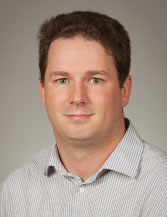 Liam McGuire, Assistant Professor in the Department of Biological Sciences, is Co-Principal
Investigator on a research project that has received $1.65 million from the National
Science Foundation (NSF). The proposal, titled “Dynamics of Zoonotic Systems: Human-Bat-Pathogen Interactions,” will address the hypothesis that the root cause of negative bat-human interactions
is the loss of habitat needed to sustain bats' nomadic feeding ecology. The researchers
predict that some management decisions (e.g., destruction of bat roosts) may exacerbate
conflict, spillover, and habitat loss. Other researchers on the project are Principal
Investigator Raina Plowright, Assistant Professor in the Department of Microbiology and Immunology at Montana
State University; Co-Principal Investigator Elizabeth Shanahan, Associate Professor in the Department of Political Science at Montana State University;
Co-Principal Investigator Olivier Restif, Alborada Lecturer in Epidemiology and Royal Society University Research Fellow at
the University of Cambridge; and Co-Principal Investigator Nita Bharti, Assistant Professor in the Department of Biology at Penn State. The award was released
September 12, commences January 2018 and is expected to continue through August 2021.
Liam McGuire, Assistant Professor in the Department of Biological Sciences, is Co-Principal
Investigator on a research project that has received $1.65 million from the National
Science Foundation (NSF). The proposal, titled “Dynamics of Zoonotic Systems: Human-Bat-Pathogen Interactions,” will address the hypothesis that the root cause of negative bat-human interactions
is the loss of habitat needed to sustain bats' nomadic feeding ecology. The researchers
predict that some management decisions (e.g., destruction of bat roosts) may exacerbate
conflict, spillover, and habitat loss. Other researchers on the project are Principal
Investigator Raina Plowright, Assistant Professor in the Department of Microbiology and Immunology at Montana
State University; Co-Principal Investigator Elizabeth Shanahan, Associate Professor in the Department of Political Science at Montana State University;
Co-Principal Investigator Olivier Restif, Alborada Lecturer in Epidemiology and Royal Society University Research Fellow at
the University of Cambridge; and Co-Principal Investigator Nita Bharti, Assistant Professor in the Department of Biology at Penn State. The award was released
September 12, commences January 2018 and is expected to continue through August 2021.
Gerdes is New Media Lab Director
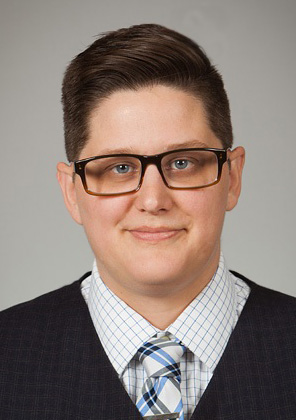 Kendall Gerdes, Assistant Professor in the Department of English, has been named
Director of the department's Media Lab, effective with the beginning of the fall 2017
semester. Specializing in Technical Communication and Rhetoric, Gerdes earned her
PhD in Rhetoric from UT-Austin. Her research interests include using and making video
games, using simpler tools like Twine. She co-authored a webtext, "Crossing 'Battle Lines,'" in Kairos about teaching digital
literacy with alternate reality games. The Media Lab provides access to A/V equipment
and software and help with printing flyers and posters. Gerdes hopes that the Media
Lab will inspire students and faculty alike. "We can support instructors who want
to incorporate creative media technology into their classrooms, even if you're not
quite sure how," she writes. "A big part of our mission is supporting the development
of digital and new media literacies." For undergraduate students, Gerdes will continue
the 2311 Instructional Design Contest, and would like to create a new award for graduate
instructors.
Kendall Gerdes, Assistant Professor in the Department of English, has been named
Director of the department's Media Lab, effective with the beginning of the fall 2017
semester. Specializing in Technical Communication and Rhetoric, Gerdes earned her
PhD in Rhetoric from UT-Austin. Her research interests include using and making video
games, using simpler tools like Twine. She co-authored a webtext, "Crossing 'Battle Lines,'" in Kairos about teaching digital
literacy with alternate reality games. The Media Lab provides access to A/V equipment
and software and help with printing flyers and posters. Gerdes hopes that the Media
Lab will inspire students and faculty alike. "We can support instructors who want
to incorporate creative media technology into their classrooms, even if you're not
quite sure how," she writes. "A big part of our mission is supporting the development
of digital and new media literacies." For undergraduate students, Gerdes will continue
the 2311 Instructional Design Contest, and would like to create a new award for graduate
instructors.
Skidmore Book Reviewed in Higher Ed
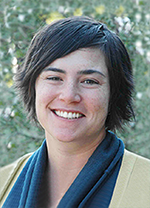 Emily Skidmore, Assistant Professor in the Department of History, has published her
latest book, True Sex: The Lives of Trans Men at the Turn of the 20th Century" (NYU Press, September 2017), just reviewed in the Sept. 6 edition of Higher Ed. Reviewer Scott McLemee describes the timeframe about which Skidmore writes as one
in which "...the rise of press agencies and newspaper syndicates meant that what once
would have been a local development often enough became a national event. But surprise
did not always turn into shock. ... Manhood was at least as much a moral status as
a sexual category—one established through hard work, good behavior and the ability
to provide for family. ... A woman plausibly embodying manhood was, in effect, achieving
something admirable. ... the general tendency was for such revelations of gender-bending
to be assimilated into the prevailing mores as, in effect, exceptions to the rule
that did not threaten the rule." McLemee goes on to note that Skidmore's analysis
includes general points on the place that scientific expertise occupied, as opposed
to the commentary of character witnesses, in journalistic writings: showing that the
opinions of neighbors, coworkers and wives mattered much more on the local level when
it came to determining the reaction to trans men than did the "expert" opinion of
sexologists. While McLemee wishes that Skidmore had included more quantifiable citations
from sexologists, he sees this not as a flaw but as a point of departure for future
research.
Emily Skidmore, Assistant Professor in the Department of History, has published her
latest book, True Sex: The Lives of Trans Men at the Turn of the 20th Century" (NYU Press, September 2017), just reviewed in the Sept. 6 edition of Higher Ed. Reviewer Scott McLemee describes the timeframe about which Skidmore writes as one
in which "...the rise of press agencies and newspaper syndicates meant that what once
would have been a local development often enough became a national event. But surprise
did not always turn into shock. ... Manhood was at least as much a moral status as
a sexual category—one established through hard work, good behavior and the ability
to provide for family. ... A woman plausibly embodying manhood was, in effect, achieving
something admirable. ... the general tendency was for such revelations of gender-bending
to be assimilated into the prevailing mores as, in effect, exceptions to the rule
that did not threaten the rule." McLemee goes on to note that Skidmore's analysis
includes general points on the place that scientific expertise occupied, as opposed
to the commentary of character witnesses, in journalistic writings: showing that the
opinions of neighbors, coworkers and wives mattered much more on the local level when
it came to determining the reaction to trans men than did the "expert" opinion of
sexologists. While McLemee wishes that Skidmore had included more quantifiable citations
from sexologists, he sees this not as a flaw but as a point of departure for future
research.
Hurricane Research Team Deploys to Irma
Texas Tech's Hurricane Research Team had only just returned from collecting data on Hurricane Harvey when, once again, it deployed to the Florida coast to place portable weather stations, called StickNets, that will measure the winds, temperatures and air pressure changes of the approaching Hurricane Irma. The research group has been researching tropical systems using deployable instruments since the late 1990s and has collected data from more than two dozen storms since that time, according to a Sept. 6 article in the DailyToreador. The Irma deployment also was covered in a Sept. 6 news segment on FOX-34. Now listed as a Category 5, Hurricane Irma has become the strongest storm ever recorded in the Atlantic. Its wind speeds, estimated at 185 mph, will put the Hurricane Research Center's Equipment to the test. And in turn, that equipment will provide Texas Tech researchers with valuable new data.
Kolosov Gives Humanities Center Talk
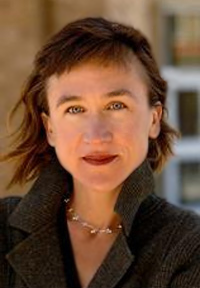 Jacqueline Kolosov, Professor in the Department of English, spoke Sept. 6 at "Burning
Country: Syria and the Challenge of Art to Ameliorate, Heal, and Transform" on the
TTU campus. The event was the first in a series of Faculty Fellow talks hosted by
the Humanities Center for the 2017-2018 academic year. According to an article in
the Daily Toreador that covered the event, Kolosov said she was inspired to study
the effect of art on Syrian refugees in 2015, after completing a reading of the play
"The Trojan Women" by Euripides. She started her presentation with a quote from the
final line in the play where the women of Troy leave their home. "You have the Trojan
War, this event that happened a long time ago and yet those lines from the play speak
very strongly to what's happening now (in Syria)," Kolosov told the Daily Toreador.
"Tragedy is meant to be cathartic. There is that element as well of art that has made
a cathartic role." The article went on to describe Kolosov's talk with the following
details: "According to 'The Crossing' by Samar Yazbek, 640,200 Syrians were displaced
by the conflict and one-third of families in the camps were headed by women. Kolosov
presented attendees with photos of art in the war-torn country, such as a man playing
piano in the streets of Aleppo and murals painted by children of the refugees. Kolosov
highlighted a bright spot in the conflict, in the form of the Syrian Art Initiative.
The program provides children and adults besieged by the Syrian Conflict with writing
workshops and art projects for them. 'Many (people) know about art therapy programs,'
Kolosov said. 'And so, one fundamental component of these public murals is this idea
of their processing trauma through art and through writing. I think that some of these
activities are organized to give them a specific focus and have a positive impact
on the large amount of women (in the camps).'"
Jacqueline Kolosov, Professor in the Department of English, spoke Sept. 6 at "Burning
Country: Syria and the Challenge of Art to Ameliorate, Heal, and Transform" on the
TTU campus. The event was the first in a series of Faculty Fellow talks hosted by
the Humanities Center for the 2017-2018 academic year. According to an article in
the Daily Toreador that covered the event, Kolosov said she was inspired to study
the effect of art on Syrian refugees in 2015, after completing a reading of the play
"The Trojan Women" by Euripides. She started her presentation with a quote from the
final line in the play where the women of Troy leave their home. "You have the Trojan
War, this event that happened a long time ago and yet those lines from the play speak
very strongly to what's happening now (in Syria)," Kolosov told the Daily Toreador.
"Tragedy is meant to be cathartic. There is that element as well of art that has made
a cathartic role." The article went on to describe Kolosov's talk with the following
details: "According to 'The Crossing' by Samar Yazbek, 640,200 Syrians were displaced
by the conflict and one-third of families in the camps were headed by women. Kolosov
presented attendees with photos of art in the war-torn country, such as a man playing
piano in the streets of Aleppo and murals painted by children of the refugees. Kolosov
highlighted a bright spot in the conflict, in the form of the Syrian Art Initiative.
The program provides children and adults besieged by the Syrian Conflict with writing
workshops and art projects for them. 'Many (people) know about art therapy programs,'
Kolosov said. 'And so, one fundamental component of these public murals is this idea
of their processing trauma through art and through writing. I think that some of these
activities are organized to give them a specific focus and have a positive impact
on the large amount of women (in the camps).'"
Hayhoe Writes About Hurricane Harvey
 Katharine Hayhoe, Professor in the Department of Political Science and Director of
TTU's Climate Science Center, was one of three climate scientists who wrote an article
about Hurricane Harvey that published September 4 in Business Standard and in The Conversation. The article enumerated the factors that created Houston's vulnerability to hurricanes,
flooding and the ever-increasing effects of a changing climate. "As atmospheric scientists
in Texas, we already know the hazards are real," the authors wrote. "Once the effects
of Harvey have been added up, Texas and Louisiana will have been hit by more billion-plus
dollar flooding events since 1980 than any other states. We also know that many of
these hazards are intensifying. In a warmer world, heavy precipitation is on the rise,
which increases the amount of rain associated with a given storm. Sea level is rising,
worsening the risks of coastal flooding and storm surge. At the cutting edge of climate
research, scientists are also exploring how human-induced change may affect storm
intensity and the winds that steer the hurricanes. This is why catastrophes like Harvey—in
which every extra inch of rain can lead to additional damage and harm—highlight exactly
how and why climate change matters to each and every one of us." the other two authors,
Andrew Dessler, Professor of Atmospheric Sciences at Texas A&M University, and Daniel
Cohan, Associate Professor of Environmental Engineering at Rice University,joined
Hayhoe in suggesting how Texas can lead the way in changing the risk equation, even
as the Trump administration has proposed budget cuts at "the National Weather Service
and other agencies that study and forecast weather and climate disasters and has rescinded
regulations designed to address rising sea levels when constructing infrastructure."
Another report was republished Sept. 9 in the San Antonio Express-News.
Katharine Hayhoe, Professor in the Department of Political Science and Director of
TTU's Climate Science Center, was one of three climate scientists who wrote an article
about Hurricane Harvey that published September 4 in Business Standard and in The Conversation. The article enumerated the factors that created Houston's vulnerability to hurricanes,
flooding and the ever-increasing effects of a changing climate. "As atmospheric scientists
in Texas, we already know the hazards are real," the authors wrote. "Once the effects
of Harvey have been added up, Texas and Louisiana will have been hit by more billion-plus
dollar flooding events since 1980 than any other states. We also know that many of
these hazards are intensifying. In a warmer world, heavy precipitation is on the rise,
which increases the amount of rain associated with a given storm. Sea level is rising,
worsening the risks of coastal flooding and storm surge. At the cutting edge of climate
research, scientists are also exploring how human-induced change may affect storm
intensity and the winds that steer the hurricanes. This is why catastrophes like Harvey—in
which every extra inch of rain can lead to additional damage and harm—highlight exactly
how and why climate change matters to each and every one of us." the other two authors,
Andrew Dessler, Professor of Atmospheric Sciences at Texas A&M University, and Daniel
Cohan, Associate Professor of Environmental Engineering at Rice University,joined
Hayhoe in suggesting how Texas can lead the way in changing the risk equation, even
as the Trump administration has proposed budget cuts at "the National Weather Service
and other agencies that study and forecast weather and climate disasters and has rescinded
regulations designed to address rising sea levels when constructing infrastructure."
Another report was republished Sept. 9 in the San Antonio Express-News.
College of Arts & Sciences
-
Address
Texas Tech University, Box 41034, Lubbock, TX 79409-1034 -
Phone
806.742.3831 -
Email
arts-and-sciences@ttu.edu
